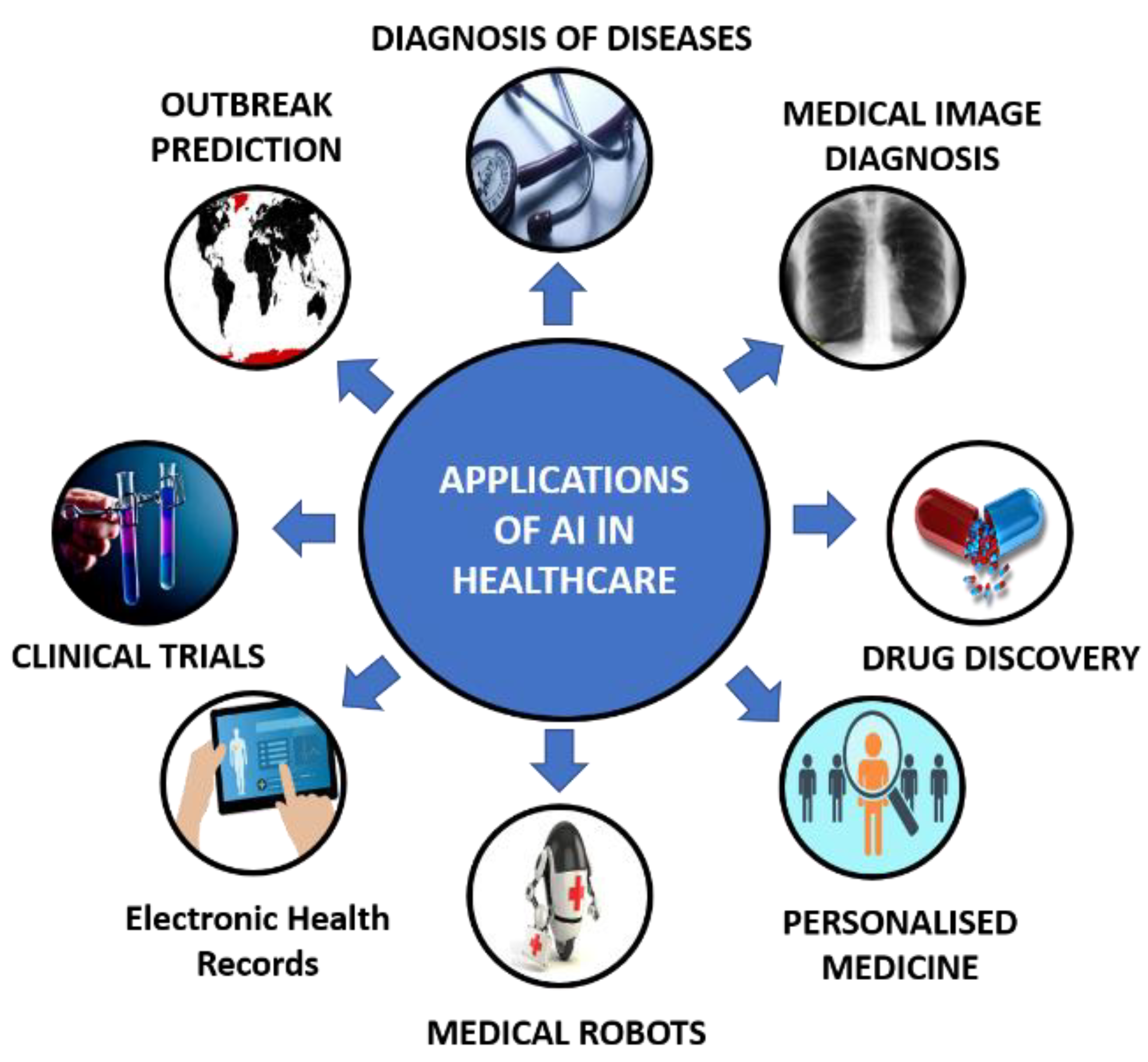Artificial Intelligence & Machine Learning in Healthcare
With the ever increasing health related problems in the world, new technologies need to usher and advancements to be made to keep up with the needs of the growing population. The combination of artificial intelligence and machine learning holds great promise in the advancement of healthcare technologies. One of the key venues that this combination shines is the diagnosis of diseases. Machine learning algorithms can look at large amounts of data – also known as big data – to look for patterns and learn from it to predict diseases.
This can be done through the analysis of different imaging tests such as X-rays or MRI scans, patient records, or even genetic information, and they can employ predictions based on finding patterns in this data. Also, as the models improve by looking at more and more data, they will become extremely accurate and more time-efficient, allowing for early detection of diseases and ultimately saving many lives. Implementation of AI and ML in the health sphere will also allow for the discovery of treatments for various diseases as the artificial intelligence models will be able to analyze a large amount of data, potentially uncovering very minute details about the particular disease that could lead to a cure, which would have otherwise been missed.
Artificial intelligence based drug discovery methods can provide greater accuracy, reduced time, and reduced costs than the current methods of finding treatments. Artificial intelligence and machine learning are also opening the doors for a more personalized treatment for a patient based on their past medical records, lifestyle factors, and other data. This will allow treatments to be designated to the patients based on their needs and allergies, maximizing treatment while minimizing the after-effects of medication.

Along with having a positive impact on the treatment of patients and other medicinal applications, the usage of AI and ML can also improve administrative tasks in the industry. For example, AI can optimize the process for scheduling appointments to a doctor, reducing wait times. Other examples include transcribing the medical records or allow for patients with more severe conditions to be allowed the appointment earlier. These simple tasks can increase customer satisfaction and allow for the health professionals to have more time to spend with the patients and treat them. Even though using artificial intelligence and machine learning in healthcare provides various benefits, they do have some critical drawbacks too.
The usage of AI can allow for some security flaws and tight security measures would need to be employed to ensure that private patient data remains secure. Another major concern is that sometimes the models may give out false positives or false negatives for disease diagnoses, which might endanger a patient’s life. AI should be used to help the health professionals, and not replace them to ensure the well-being of all patients. Overall, the use of artificial intelligence and machine learning algorithms hold immense promise for the future, as they can provide unprecedented benefits to the healthcare industry in various ways, ensuring the well-being of the people.